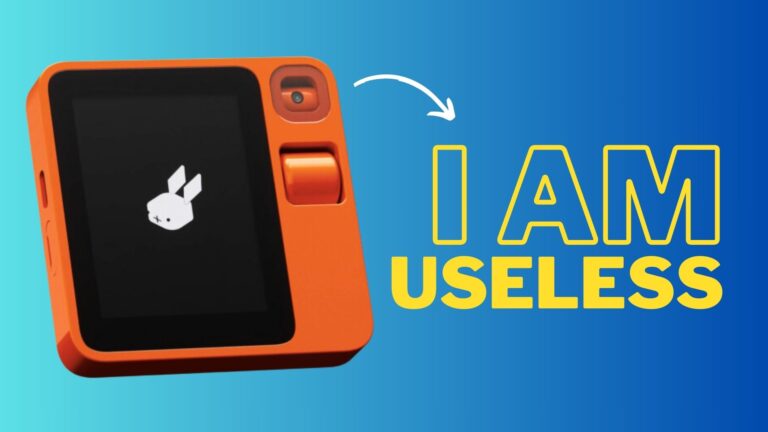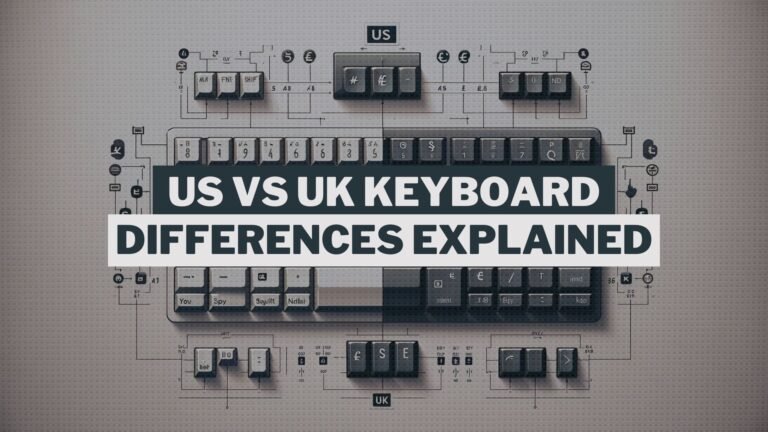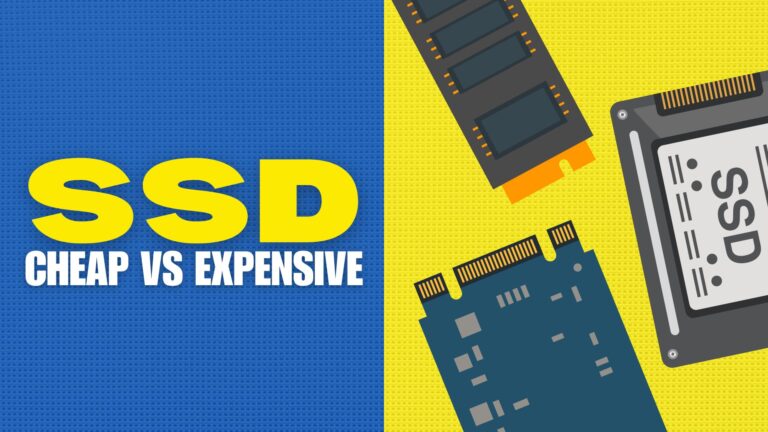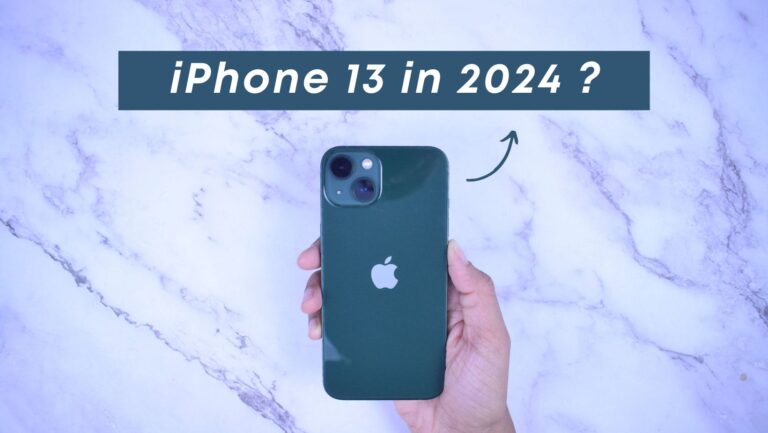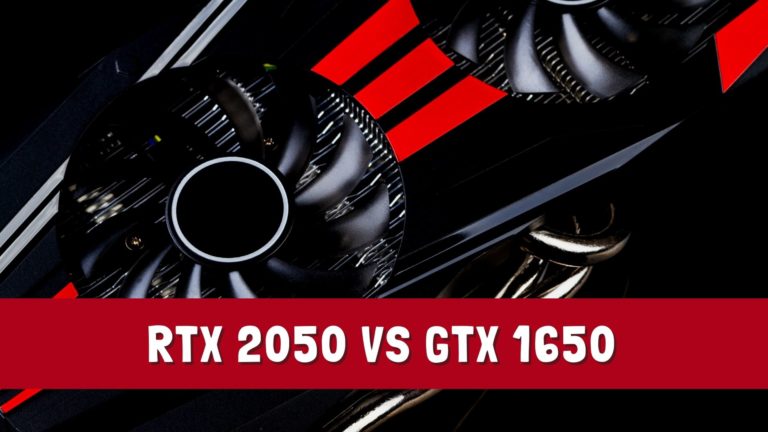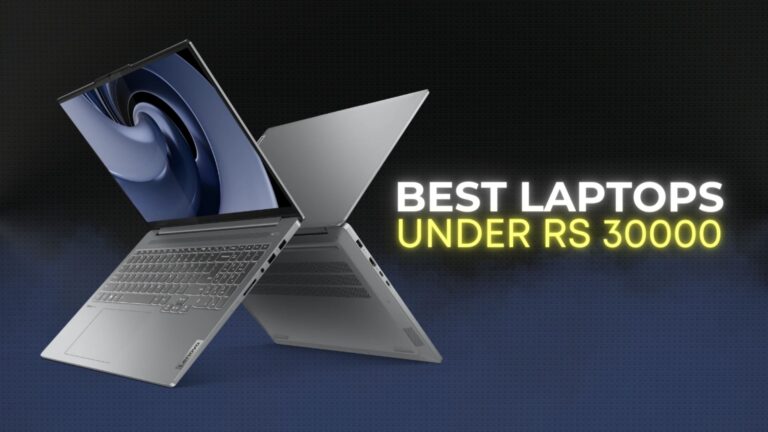The popularity of gaming laptops is hitting through the roof because of their portability. More and more people want to carry their gaming laptops wherever they go for various purposes.
But since they come with different options, sizes, and prices, their storage also varies. The amount of storage also strongly depends on the games you’ll be playing on your laptop. Keep reading as we break down the type and amount of storage that will be perfect for you.
Different Types Of Storage Devices Found In Gaming Laptops
Before learning how much storage is enough, you need to have ample knowledge about the storage itself. So, let’s talk about the types of storage available in today’s market.
1. Hard Disk Drive (HDD)
A good hard drive gives you more memory space to store your data or games. It boosts your laptop’s performance while decreasing lag in games. The basic storage capacity is determined by the type of HDD you buy.
So, buying one with a small storage capacity won’t be able to handle more data.
2. Solid-state Drive (SSD)
This storage type defines the quality and the performance of your games. It also reduces the waiting time for many gamers. SSDs are more expensive than standard HDDs.
However, they are a great buy since they provide smooth performance, decrease overheating, and allow you to load games much faster.
3. SSHD (Solid State Hybrid Drive)
A solid-state hard drive (SSHD) is a hard disk drive and a hybrid solid-state drive. It works slightly slower than SSD but faster than any HDD. An SSHD was created to combine the rapid transfer rates of an SSD with the enormous storage capacity and low cost of an HDD.
A tiny SSD-type memory is fitted in that stores and records the most common operations you take on your computer. The standard HDD parts handle long-term use, such as storing large files in high-performance flash memory. Overall, you get the best of two in one, making it a better choice after HDD in terms of cost.
4. M.2 SSDs

They are form factor that works as a replacement for mini-SATA. M.2 SSD is generally more expensive than a normal SSD. The size is more compatible, having a width of 22 mm, and can approximately go up to 30 mm compared to mSATA’s largest 50 mm.
5. NVMe SSD
NVMe SSDs are found in more modern gaming laptops since they are substantially quicker than SATA 3 SSDs. Compared to 600 m/s with a SATA interface, the NVMe interface can achieve transfer rates of up to 3.5 GB/s.
Storage Capacity for Common Games Sizes
Initially, a gaming laptop should have at least 512 GB of space if you plan to buy a few games or ones with small storage. The size of average AAA games consists of 25 GB and can even go up to 50 or 100 GB.
Keep at least 1TB on your gaming laptop if you purchase more than one. The default option is 128 GB SSD if you are a casual player who plays one or two games for fun.
For many game enthusiasts, 1TB might not even be enough. But for some people, 512 GB of storage is too much. Again, it all depends on the types and games you are going to play, how much you will play and what else you plan to store besides games, etc.
500 GB
For someone who is just getting started, 500 GB is good storage space. This much storage space is more than sufficient for casual players with a limited budget and who don’t have a steam library.
If you notice your library is filling up, you can always go for an upgrade to 1000 GB. If not, clearing games after you are done and removing unwanted multimedia files will also free you a lot of space.
1000 GB
This is the most common hard disk, especially for gamers who are conscious about their budget. Luckily, in recent years, 1000 GB disks have become more affordable. Even with a large inventory of games, waiting to be installed, 1000 GB or 1 TB may still be sufficient. Ultimately, it will run out of space, but you can always go for another upgrade.
2000 GB
If you can spend more, this disk storage will guarantee you unlimited storage space for a while. With this, you can easily play games and continue to buy more simultaneously without any worry. Buying this ample storage is not necessary unless you are an avid gamer or if you have any other purposes, then go for it!
Some Gaming Laptops Have Both HDDs and SSDs
HDDs and SSDs are the best storage options for gaming laptops. They both have their costs despite their differences. SSDs increase speed and make access to data easier, making them ideal for gaming.
On the other hand, HDDs provide large amounts of storage at a minimal cost. So, you can imagine the fun you will experience. Choose the one that best meets your needs. Or, just go for a gaming laptop that comes with both.
Things to Take Into Consideration When Choosing the Right Amount of Storage
Deciding the right amount of storage can be quite time-consuming, and you’ll undoubtedly want to save money. Before purchasing the appropriate quantity of storage, there are a few things to consider.
What Kinds Of Games Do You Play Or Willing To Play?
The amount of free disc space varies with each game. If you’re interested in playing AAA games, you already know that they take up more space and require good storage space.
Since the graphics level and data are pretty high, getting both SSD and HDD is recommended to experience the best performance. But if you’re only going to play games designed for low-end laptops, you won’t need much data storage.
In comparison to other games, RTS (Real-Time Strategy) games often demand less computing power. You won’t require as much space if you mostly play RTS games.
How Frequently Do You Purchase Video Games?
If you’re not a gamer investing your time wholly in gaming, you don’t have to have high storage. For that, around 500 to 600 GB will suffice.
On the other hand, if you want to buy and play many games, both light, and heavy, 500 or 600 GB won’t suffice and will fill up faster. A storage amount of at least 1TB will last you a good while.
Do You Delete Your Games, Or Are You A Collector?
Some gamers like to erase old games once they’ve finished playing them. Of course, this saves up space for new games.
However, if you collect and store games or have a lot of games downloaded so you can switch between them, then you’ll need a large amount of space.
How Many Games Do You Have Right Now?
This is also important because every game requires future updates. While the increase is minimal, if you’re the owner of many games and will buy more, then it’s good to have enough space in your gaming laptop.
Plus, if you want to download many games that you already own from platforms like GOG, Origin, and Steam, then it’s good to have at least 1TB. It asks for a lot of storage space, so make sure to have plenty.

What About Other Plans Besides Gaming?
You can already tell that more storage space will be needed if you want to do activities alongside gaming. It can be storing movies, software for academic or other job-related work, or any large media file.
If you also plan to do things primarily outside gaming stuff, then a storage space of above 500 GB will be enough.
How Much Can You Or Want To Spend?
Looking at large numbers of your storage space can be quite satisfying. Even though we all want a lot of storage on our computers, our budgets often restrict us. Of course, it goes without saying that if you don’t have a limit, then you can purchase as much storage as possible.
The storage capacity of high-end laptops can reach up to 2 TB or more. If you’re on a tight budget, focus on purchasing a gaming laptop with a powerful graphics card and processor. You can worry about RAM and extra storage later.
RAM and storage can easily be updated, but replacing the processor or the GPU won’t be as easily possible.
Final Thoughts
Purchasing a gaming laptop with the right amount of storage depends on how much you can pay. Other factors, like the number of games or other software or applications you get, play a role. The best part is that there are plenty of budget-friendly options to choose from, and they will help you achieve the best experience. For a beginner, 512 GB is an ideal option, but if you know you’ll be involved in many games, then 1TB would be the best option.

